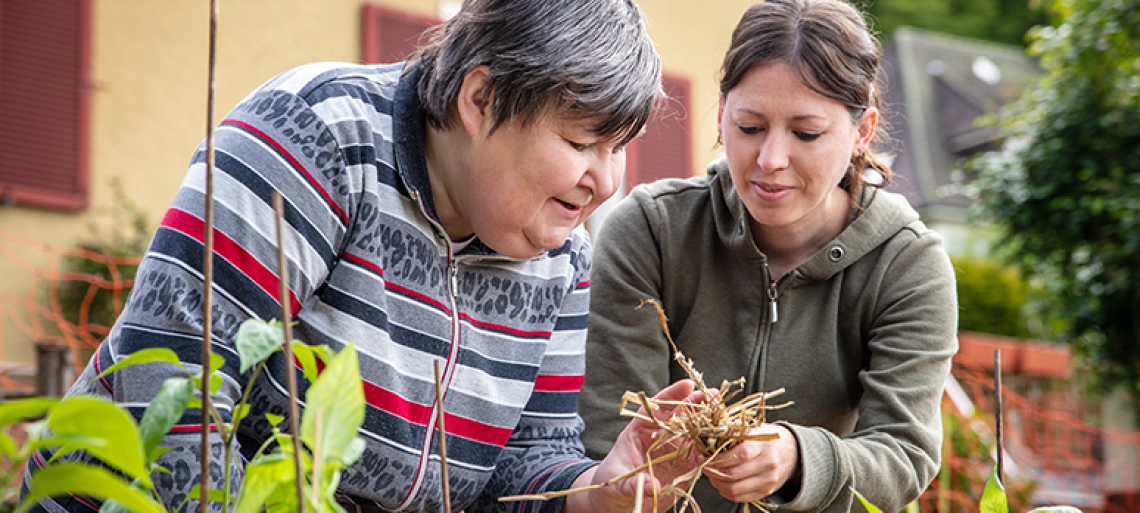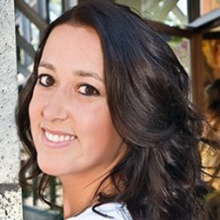Intellectual and Developmental Disability Resilience with Long-Term Caregiving

All family caregivers share similar experiences, but those who care for individuals with Intellectual and Developmental Disabilities (I/DD) face unique challenges due to the extended periods of care required. The term I/DD includes a range of diagnoses and caregiving requirements, such as intellectual disabilities, cerebral palsy, autism, and neurological impairments. Caregiving needs can involve help with daily activities, social interactions, safety, physical functioning, cognitive learning, language, and behavioral development. Since developmental disabilities may require lifelong care, caregiving needs can be intense and prolonged.
The Unique Challenges of I/DD Caregiving

Michele Thorne, co-founder and executive director of Care 4 the Caregivers
Courtesy Michele Thorne
Michele Thorne is the co-founder and executive director of Care 4 the Caregivers and the mother of two autistic children. Care 4 the Caregivers support caregivers through full access to a library of resources, informational space, and programs and services for families. Michele took some time to give her perspective on the challenges and opportunities of long-term caregiving and the I/DD community.
Michele mentioned that the disability community is the largest minority group in the world and crosses all socioeconomic, ethnic, and gender lines. It is also the only equal-opportunity minority—you can join the disability community at any time, and if you live long enough, you will. Nearly one million households in the United States include adults with intellectual and developmental disabilities who live with a family member or parent. Most I/DD adults receive support from their parents and families.
I/DD Caregiving and Work and Life Balance
Michele shared some information on the work experience of the I/DD caregivers.
- The IDD caregivers may work more hours and substantially longer than the national caregiving average.
- 39% of caregivers leave their job to care for a loved one. (Family Caregiver Alliance)
- Labor force participation rate among people with disabilities who are of working age is 35.4%
- There are an estimated 16.8 million unemployed caregivers of special needs children in the United States. (MetLife Foundations 2009)
Social Isolation and Connection
Michele stated that caregivers and those with disabilities often feel isolated. “It is critical that caregivers connect with each other and share the struggles and joys of caregiving, and to relate to those who are walking a similar journey.”
At Care 4 the Caregivers, Michele stated that once parents shift their perspective regarding disability, they have less stress, a better outlook on life, improved quality of life, and higher expectations of their children.
“Caregiving for parents of children with IDD can seem daunting because they enter this space with the thought that they will have to raise their child forever, even though that might not be the case. These assumptions about the abilities of the child or adult can become a self-fulfilling prophecy. Once parents develop an open mindset regarding the possibility of independence for their child, everything changes.”
Quality of Life and Caregiving: Embracing Disability Pride, Culture and Community
Michele states that one of the best things we can do for caregivers raising children and adults with disabilities is to help them embrace disability pride and culture.
“Society often frames disability as a negative experience, and so when parents receive a disability diagnosis for their child, they experience grief, sorrow, and some blame themselves for their child’s disability. To overcome these emotions, it is important for caregivers to accept their child the way they are and to become involved with the disability community.”
When caregivers acknowledge their potential for culture change, Michele sees the possibility for change on a larger scale. “Outside of the things caregivers can do for themselves, much needs to be done to help reduce caregiver stress and anxiety by fixing systems of care that are designed to support children with disabilities.”
Michele offers some examples:
- Being able to access trusted respite providers. Respite is almost unobtainable for the caregiver community, and finding someone caregivers can trust with their IDD child is nearly impossible- more must be done to firm up the direct care workers for the IDD community.
- Educating mental health providers on proper ways to work with caregivers and people with disabilities. Too often, we have had caregivers come to our charity saying they have been turned away from multiple mental health therapists because they don’t know how to work with caregivers or people with disabilities. Improve group homes for those with IDD and reduce the abuse rate in these spaces.
- Make it easier for the IDD community to connect with the non-IDD community by making spaces more accessible.
Michele and her team at Care 4 the Caregivers lean into the challenges of family caregiving while offering information (an impressive website) of resources and an empowering environment and programs and services that offer a quality of life for the family and for the community.

